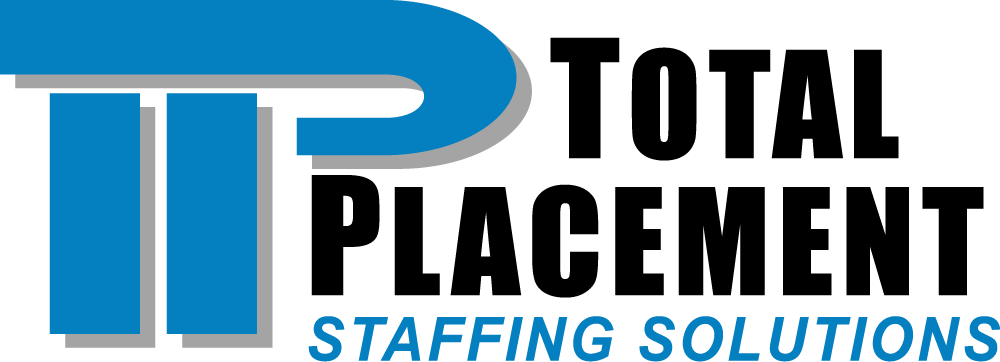 The next 30 to 60 days could be a turning point for your career.
The next 30 to 60 days could be a turning point for your career.
The economy is improving and industries like manufacturing, logistics, office administrative, and skilled trades companies are expanding, and they’re eager to find people like you who are looking for long-term careers.
If you are looking for a new job – get ready now.
The momentum is starting to build. If you are feeling unappreciated or your skills are being unfairly rewarded – alternatives are becoming available.
It’s time to start exploring your options!
Employers are looking for motivated individuals who are ready to bring their energy, adaptability, and talents to the table. And, you don’t have to do it alone. Get the work out now through friends, neighbors, church members, social groups, and anyone else you can think of that you are in the job market. Over 60% of all jobs are filled through referrals so start the wheels turning in your network now.
How to Stand Out
When it comes to landing your ideal job, small steps can lead to big results. Don’t use one the “one resume fits all” (or one application) method. Create a new one for each job opening that stresses how your acquired experience addresses their opening. Then, arrive at your appointed time for your appointments. If you cannot be punctual for the all-important interview, how good can you be? Potential employers look at the little things.
Don’t Overlook Staffing Agencies – They’re a Powerful Career Ally
One of the most underestimated resources in a job search is the staffing agency. These firms are more than just middlemen—they are actual employers, and the impression you make on them matters. Your attitude, professionalism, and past work performance all shape the way you’re represented to prospective employers.
Think of it this way…
…when a staffing agency submits your application, they’re doing so based on their firsthand experience with you. That’s part of your resume now – your work history with them, how well you communicated, showed up, and performed. A strong relationship and record with a staffing agency can become your best reference.
For example, Total Placement Staffing in Central Texas provides:
Interviews often within 24 hours of applying.
- Direct connections to respected companies offering competitive pay and long-term careers.
- Immediate exposure to employers actively hiring that you may not have access to otherwise.
- A jump-start on the competition through expert placement support.
Partnering with a staffing agency doesn’t just get your foot in the door – it can give you a head start. Treat the agency with the same professionalism you would any employer. In many ways, they are your first.
Don’t Wait—Take Action Today
The job market is starting to move now, but great opportunities don’t last forever. Whether you’re ready to find a role that values your skills, offers better pay, or helps you to grow, now is the time to act.
Brighter tomorrows start with the choices you make today.
Are you ready to take the leap?
 In larger companies, resumes and applications are often sorted by AI (artificial intelligence) applicant tracking systems. If your information does not appear to match a job they have open, you will not get an opportunity to talk to anyone.
In larger companies, resumes and applications are often sorted by AI (artificial intelligence) applicant tracking systems. If your information does not appear to match a job they have open, you will not get an opportunity to talk to anyone.
No one in Human Resources departments looks at resumes directly. Instead, AI filters through hundreds of resumes a minute and selects only those it deems relevant. While this is a time saver for HR, it can spell disaster for many excellent job applicants.
Ways to Get Past the “AI Watchman”
Tailor Your Resume or Application to the Job
Customize each resume to address the specific job opening. Assuming you are qualified, identify which experiences from your past jobs are transferable to the open position. Clearly demonstrate how your background aligns with the job requirements.
Highlight Your Skill Sets
Discuss how your skill sets and experiences in previous positions relate to the job opening. Use keywords from their job posting and where appropriate, integrating them naturally into your resume or application. AI algorithms are designed to recognize these keywords, but avoid overloading your document or attempting to “trick” the system. AI is increasingly sophisticated and can detect insincerity.
Avoid Complex Formatting
Fancy, overly complicated resumes often fail because resume parsing systems struggle to interpret tables, graphics, and other non-standard elements. When parsed, tables tend to scatter your information, rendering it unusable. Avoid using tables, images, or unconventional formats. Stick to clean, simple layouts.
Keep Your Design Simple
Skip introductions and get straight to the content. Use traditional section headings like “Job History” or “Experience,” “Education,” and “Skills.” Ensure that each skill listed is supported by your work history and is relevant or transferable to the job you’re applying for.
Verify Your Online Presence
Make sure your information on platforms like Indeed, LinkedIn, Facebook, and other social media aligns with the persona you’re portraying in your current application. Inconsistencies between your online profiles and your resume can raise red flags.
For many, the process of job searching and applying has dramatically changed. By following these suggestions, you can greatly increase your chances of success.
 Finding jobs during an economic downturn can be challenging, but with the right strategies, it’s possible to succeed. Here are some tips to help you navigate the job market in a down economy:
Finding jobs during an economic downturn can be challenging, but with the right strategies, it’s possible to succeed. Here are some tips to help you navigate the job market in a down economy:
1. Be Flexible and Open to Opportunities
In a tough economy, jobs may be scarce, and competition can be fierce. Flexibility is key. Consider expanding your job search to industries outside your normal background but requiring the same skillset. Additionally, contact the premier job agencies in your area. They often know of opportunities not listed job boards.
2. Network, Network, Network
Building a strong network of friends is essential. Connect with former colleagues, mentors, and industry professionals. Over 60% of all jobs filled are filled through networking. Let people know you are actively seeking new opportunities and keep expanding this group.
3. Leverage Online Job Boards and Social Media
Take full advantage of online job platforms, but be aware they are more times than not a “black hole.” However, they should be included in your wide net called “marketing your skills.” Employers often scout for candidates online, so a polished, professional online presence can be a powerful tool in your job search.
4. Tailor Your Applications
In a competitive market, sending out generic applications won’t cut it. Tailor each resume and cover letter to the specific job and company you are contacting. Highlight the skills you have they are listing as important in their job position advertisement.
5. Be Persistent and Stay Positive
Rejections are inevitable, especially in a down economy, but persistence is key. Looking for a job is a job in itself. Set aside and dedicate time every day to job hunting. Approach it like going to work and never let up. Keep refining your approach, learning from setbacks, and continuing to apply for positions. Stay positive—attitude matters in a job search, and employers are more likely to respond to candidates who convey resilience and enthusiasm.
While finding a job in a down economy can be difficult, staying flexible, continuously building your skills, and utilizing your network will increase your chances of success.


